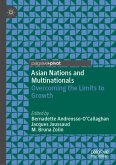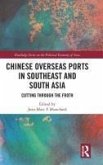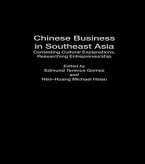Already in the 1960s the four little dragons Hong Kong, Singapore, South Korea and Taiwan started their industrialization moving steadily upwards with increasing growth rates, some of them double-digit in the 1980s. Most significant for these results has been their export-oriented growth strategy capitalizing on low labour costs and opening them up to the world market with all its benefits and pressures. Until today they have attracted quite a lot of foreign investors bringing technology and skills beside the pure capital. Thus, all four countries have reached a more sophisticated level of production and partly even developed into service and financial centres.
Combining these developments with the already advanced Japan, the entire Asia-Pacific Region must be seen as an extremely dynamic area often also mentioned as the Pacific Challenge. Thus it is of high interest to examine the determinants of growth behind this challenge, behind the economic success.
Because of the specific Asian dimension of the success, especially the Asian mentality, a transfer of the growth strategy can only be possible to a very limited degree. But the Asian experiences can at least be helpful to the formulation of a country related development strategy showing up generally important growth factors.
The contributors to this book analyze important factors such as development planning, foreign investment, deregulation, government intervention, human capital, finance and banking (service sector), technology transfer and promotion, trade (export promotion), agriculture and regional cooperation. For this purpose experts in Science and Economics report from their experiences.
Combining these developments with the already advanced Japan, the entire Asia-Pacific Region must be seen as an extremely dynamic area often also mentioned as the Pacific Challenge. Thus it is of high interest to examine the determinants of growth behind this challenge, behind the economic success.
Because of the specific Asian dimension of the success, especially the Asian mentality, a transfer of the growth strategy can only be possible to a very limited degree. But the Asian experiences can at least be helpful to the formulation of a country related development strategy showing up generally important growth factors.
The contributors to this book analyze important factors such as development planning, foreign investment, deregulation, government intervention, human capital, finance and banking (service sector), technology transfer and promotion, trade (export promotion), agriculture and regional cooperation. For this purpose experts in Science and Economics report from their experiences.








